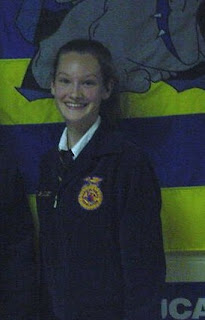10) Be sure to remember that on any other campus, weight gain in the first year of college is called the Freshman 15. At Tech, it should be the Freshman 50.Virginia Tech's food has been ranked number one in the country, so be sure to use those free gyms around campus.
9) Waiting until the last minute to start a paper, project, or reading is a bad idea. Time seems to speed up the closer you get to a dead line, so don't procrastinate!
8) Utilize your resources. There are offices all over campus, like Career Services, that want to help you succeed! Help them help you by asking for advice!
7) Keep some quarters in stock! When you need clean clothes and all you have is nickles and dimes, you'll wish you had some to do laundry with!
6) Say hello! The only way that you're going to get to know new people is to introduce yourself and to put yourself out there. Leaving your dorm room door open is a great way to meet people passing by.
5)Talk to your professors. They genuinely want to know who you are, where you are from, and help you whenever they can. Catch them after class or during their office hours so they can put a face with your name.
4) Respect your roommate. You are sharing a living space, so work out a schedule for study, sleep and fun that won't disturb your roomie.
3) Don't miss hall meeting! Your RA wants to provide you with important information during these meetings, especially when you leave for break or when you're done at the end of the year that you don't want to miss. If you do, you might get penalized later for misconduct.
2) Get involved. Find something that interests you and join that club or organization. There are over 600 at Virginia Tech, I'm sure you'll find something. If not, start your own by stopping by Student Affairs and picking up some paperwork and convince at least two of your friends to join!
1) Have fun! You're only in college for a short amount of time. Live it up. Find out who you are and find out how you can impact the world around you!
These are only a few of the helpful hints that I've picked up the way. The everyday things, like working out and ending my bad habit of procrastination, are things that I will need to keep working on in semesters to come. I hope to continue to use these tips as I advance through college and continue into my professional life, especially number one. I want to make an impact on the people and situations around me and to make a difference to someone. I can begin to do that through the clubs and organizations I am apart of, and by utilizing my strengths both in and out of the class room. That is my goal for the future, in whatever I do, and my challenge to others along the way.









